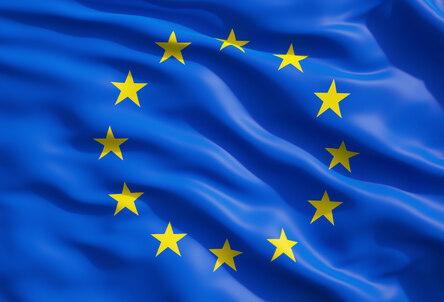In a move that has drawn both skepticism and criticism, the European Union recently vowed to bolster the Philippines’ defense against escalating pressures from China in the South China Sea. However, analysts and regional experts warn that the EU’s commitments may amount to little more than diplomatic posturing, highlighting the bloc’s limited capacity and strategic interest in directly confronting Beijing. As tensions continue to simmer in the contested waters, questions remain about whether the EU’s promises will translate into tangible support or remain symbolic gestures aimed at reassuring Manila and broader Indo-Pacific partners.
EU’s Strategic Ambitions Clash with Ground Realities in the South China Sea
The European Union’s declarations of support for the Philippines in its ongoing maritime disputes with China reveal a glaring disconnect between ambition and capability. While Brussels emphasizes values such as freedom of navigation and peaceful dispute resolution, its ability to project meaningful influence into the South China Sea remains limited by geography, military reach, and competing strategic priorities. Unlike the United States or regional actors, the EU lacks a permanent naval presence in Asia, reducing its potential to act as a credible deterrent against Chinese assertiveness. This strategic gap exposes the EU’s rhetoric as largely symbolic, fostering skepticism among Manila and other Southeast Asian governments about Brussels’ true commitment.
Key factors constraining EU’s strategic posture:
- Geographical distance: Over 10,000 kilometers separate Brussels from the contested waters, complicating rapid response or deployment.
- Military limitations: Absence of a unified EU navy or substantial blue-water fleet capable of sustained operations in the Indo-Pacific.
- Political fragmentation: Divergent views within member states hinder cohesive foreign policy actions.
- Economic ties to China: Strong trade relations create reluctance to antagonize Beijing.
| Aspect | EU Position | Ground Reality |
|---|---|---|
| Naval Presence | Minimal; occasional joint exercises | China deploys dozens of vessels daily |
| Political Unity | Fragmented member state interests | Regional countries seek reliable allies |
| Diplomatic Influence | Strong rhetoric supporting Philippines | Limited leverage over Beijing’s actions |
Implications of Brussels’ Support for Manila Amid Rising Sino-Philippine Tensions
Brussels’ recent declarations of backing Manila in its ongoing maritime disputes with Beijing reveal more about European diplomatic posturing than tangible military commitment. While European policymakers emphasize solidarity with ASEAN nations, the lack of concrete defense mechanisms or strategic presence in the South China Sea calls into question the EU’s capacity to influence the power dynamics at play. This symbolic support primarily serves Brussels’ broader geopolitical ambitions to assert itself as a global actor amid rising U.S.-China tensions, yet it risks overstretching resources and spotlighting vulnerabilities without delivering real protection to the Philippines. Critics argue that the EU’s stance epitomizes a diplomatic bluff, banking heavily on rhetoric rather than actionable deterrents.
The practical implications for Manila are therefore complex. Relying on Brussels’ promises may divert Filipino strategic focus from more robust defense partnerships and regional cooperation. An evaluation of the EU’s actual contributions highlights several limitations:
- Military Presence: No established naval bases or rapid deployment capabilities in the Asia-Pacific region.
- Diplomatic Leverage: Limited influence over Beijing compared to Washington or Tokyo.
- Economic Ties: Trade partnerships with China may temper the EU’s confrontational stance.
A comparative glance at allies’ influence underscores the EU’s constrained role in Southeast Asian security:
| Actor | Military Presence | Diplomatic Influence | Economic Engagement |
|---|---|---|---|
| United States | Strong (bases, patrols) | High | Significant |
| Japan | Moderate (joint exercises) | Medium | High |
| European Union | Minimal | Low | Moderate |
Policy Recommendations for Strengthening Genuine EU-Philippines Security Cooperation
To move beyond rhetoric, the EU and the Philippines must craft a strategic partnership grounded in tangible capabilities and mutual trust. This involves enhancing joint military exercises that prioritize realistic scenarios over symbolic displays. Equally critical is the expansion of intelligence-sharing frameworks and cybersecurity collaborations to counter hybrid threats, which are increasingly prevalent in the complex geopolitical landscape of the South China Sea. Without these concrete efforts, the EU risks being perceived as a distant actor with limited influence, undermining any claims of protection.
Moreover, financial and technological support should be channeled into upgrading the Philippines’ defense infrastructure. Prioritizing the procurement of advanced surveillance drones, secure communication networks, and maritime domain awareness tools can strengthen operational readiness. A clear roadmap for phased cooperation can be summarized as follows:
| Focus Area | Recommended Action | Expected Impact |
|---|---|---|
| Joint Training | Expand frequency and complexity of drills | Improved interoperability and deterrence |
| Intelligence Sharing | Establish real-time data exchange protocols | Enhanced situational awareness |
| Technology Transfer | Facilitate access to advanced maritime tech | Strengthened maritime domain control |
| Infrastructure Investment | Upgrade coastal defense and command centers | Boosted operational resilience |
The Way Forward
As tensions continue to simmer in the South China Sea, the EU’s declarations of support for the Philippines against China’s assertiveness underscore a complex interplay of diplomacy and strategic signaling. Whether Brussels’ commitments translate into tangible actions remains to be seen, raising questions about the true extent of its influence in the region. For now, Manila must navigate these uncertainties with cautious pragmatism, while Beijing watches closely from across the contested waters. The unfolding dynamics will undoubtedly shape the geopolitical landscape of Southeast Asia in the months and years ahead.
